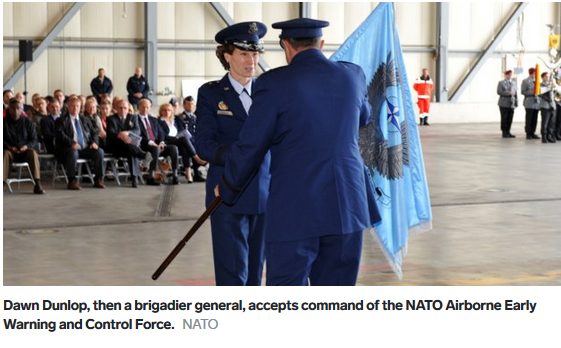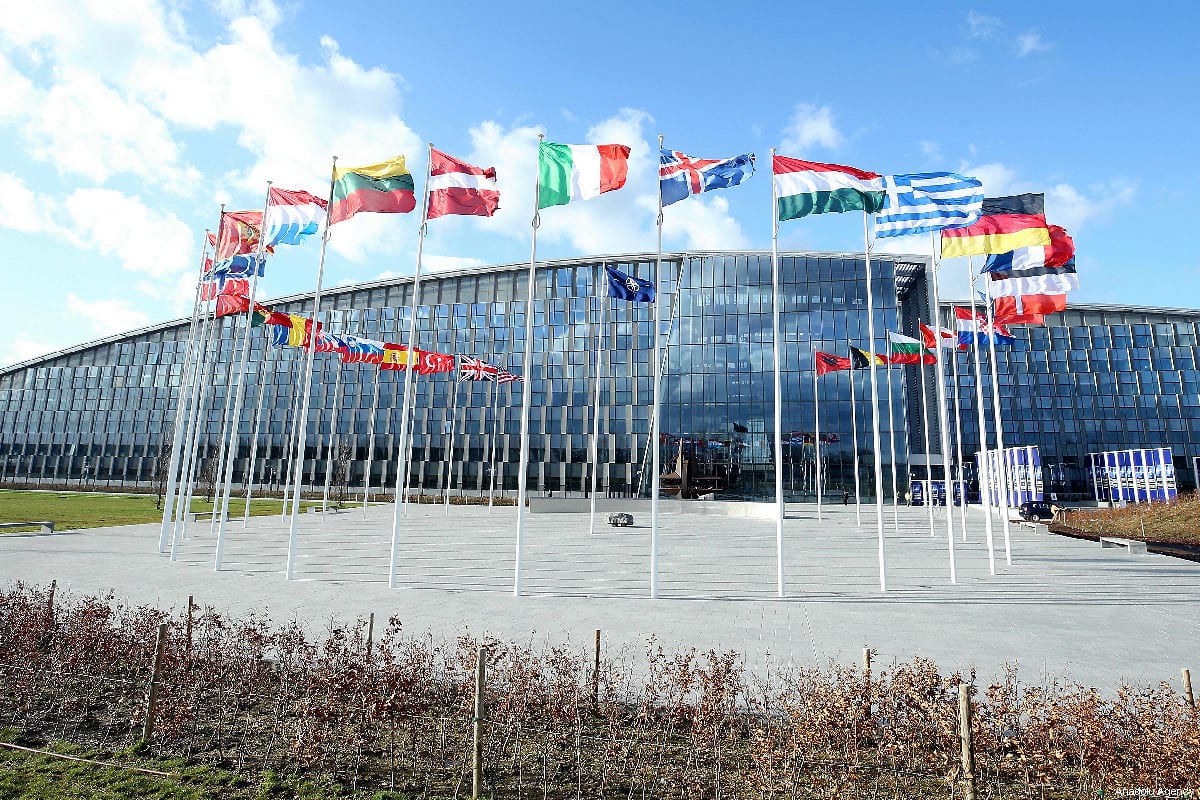angelburst29
The Living Force
May 22, 2019 - The minister spoke following a meeting of the CSTO Council of Foreign Ministers held in Kyrgyzstan.
Lavrov expects NATO to respond to post-Soviet security bloc’s initiative to ease tensions

© Alexander Shcherbak/TASS
Bishkek, Kyrgyzstan - Russian Foreign Minister Sergey Lavrov expects NATO to respond to an initiative to ease tensions in the Euro-Atlantic region and Eurasia that the Collective Security Treaty Organization (CSTO) has put forward.
"An important statement has been adopted, which openly addresses NATO members on behalf of CSTO countries and calls for steps to ease tensions in the Euro-Atlantic region and Eurasia," he said following a meeting of the CSTO Council of Foreign Ministers held in Kyrgyzstan’s capital of Bishkek on Wednesday.
"The document contains specific proposals. Let’s hope that NATO will pay attention to it and show some response," the Russian top diplomat added.
The Bishkek meeting involved the foreign ministers of Russia, Armenia, Belarus, Kazakhstan, Kyrgyzstan and Tajikistan.
The parties discussed the organization’s plans to make joint political statements and take joint steps to implement the United Nations Global Counter-Terrorism Strategy for 2019-2012 and measures to ease tensions along the Tajik-Afghan border. In addition, the foreign ministers agreed to hold consultations on foreign policy, defense and security issues in 2019-2020 and establish a mechanism of cooperation with the CSTO Crisis Response Center.
(A speech on NATO activities and a need to retain Christian and moral values towards Peace.)
Foreign Minister Sergey Lavrov’s speech at a gala reception for Orthodox Easter, Moscow, May 20, 2019
Foreign Minister Sergey Lavrov’s speech at a gala reception for Orthodox Easter, Moscow, May 20, 2019

Lavrov expects NATO to respond to post-Soviet security bloc’s initiative to ease tensions

© Alexander Shcherbak/TASS
Bishkek, Kyrgyzstan - Russian Foreign Minister Sergey Lavrov expects NATO to respond to an initiative to ease tensions in the Euro-Atlantic region and Eurasia that the Collective Security Treaty Organization (CSTO) has put forward.
"An important statement has been adopted, which openly addresses NATO members on behalf of CSTO countries and calls for steps to ease tensions in the Euro-Atlantic region and Eurasia," he said following a meeting of the CSTO Council of Foreign Ministers held in Kyrgyzstan’s capital of Bishkek on Wednesday.
"The document contains specific proposals. Let’s hope that NATO will pay attention to it and show some response," the Russian top diplomat added.
The Bishkek meeting involved the foreign ministers of Russia, Armenia, Belarus, Kazakhstan, Kyrgyzstan and Tajikistan.
The parties discussed the organization’s plans to make joint political statements and take joint steps to implement the United Nations Global Counter-Terrorism Strategy for 2019-2012 and measures to ease tensions along the Tajik-Afghan border. In addition, the foreign ministers agreed to hold consultations on foreign policy, defense and security issues in 2019-2020 and establish a mechanism of cooperation with the CSTO Crisis Response Center.
(A speech on NATO activities and a need to retain Christian and moral values towards Peace.)
Foreign Minister Sergey Lavrov’s speech at a gala reception for Orthodox Easter, Moscow, May 20, 2019
Foreign Minister Sergey Lavrov’s speech at a gala reception for Orthodox Easter, Moscow, May 20, 2019

Your Holiness,
Your Excellencies,
Colleagues and friends,
I am sincerely pleased to welcome the hierarchs of the Russian Orthodox Church, representatives of other traditional religions, government bodies and civil society, as well as heads of diplomatic missions accredited in Moscow, to the annual Easter meeting at the Foreign Ministry.
The main Christian holiday of the Holy Resurrection of Christ symbolises our faith in the triumph of kindness and mercy, fills our souls with joy, and reminds us of the importance of helping one another, love for our fellow man, the need to seek truth and justice and at the same time oppose evil in all of its forms.
Epochs have come and gone, but the Russian Orthodox Church has always stood by its flock, helping it to overcome terrible trials, including those that confronted the peoples of this country during the Great Patriotic War. Today, the Church continues its selfless efforts to unite Russian society around enduring values, greatly supports the patriotic upbringing of the youth, and invariably helps the needy – all those who are in trouble.
I would like to make special mention of the Church’s centuries-long protection of Orthodox believers, including Christians abroad, in their striving to preserve their cultural and religious identity. These efforts have always been enthusiastically supported by our country’s Foreign Ministry.
This noble work is as important as ever in today’s climate. We see how Christians are persecuted and harassed in different parts of the world. In Europe, which is coyly renouncing its Christian roots, an aggressive minority relentlessly imposes on people pseudo-liberal values that sometimes reach the point of absurdity. All this is damaging the moral health of European societies and leading to greater religious tensions.
Christians have suffered and continue suffering from the geopolitical experiments of states of the so-called historical West. Twenty years ago, NATO committed an act of aggression against Yugoslavia, which led not only to many civilian deaths but also the mass departure of Orthodox believers from Kosovo, to the desecration and destruction of churches and holy places in this Serbian territory, including those under UNESCO protection.
The Middle East is also going through serious trials. The exodus of Christians from Iraq, public executions of Coptic Christians in Libya and the murder of Christians by terrorists and extremists in Syria are just a small part of the consequences of the irresponsible geopolitical engineering by the US and its closest allies.
Russia continues to render comprehensive assistance to the Christians of the Middle East: from humanitarian relief to the restoration of churches and monasteries. This country has initiated large international events on protecting Christians at the UN, OSCE, the Council of Europe and other venues.
Obviously, it is only possible to reliably protect Christians living in the Middle East and North Africa, as well as representatives of other religions, by completely eliminating terrorism and reaching a stable political and diplomatic settlement of numerous crises and conflicts. Russia is actively working on addressing these major challenges. It is largely owing to our efforts that Syrian statehood was preserved, a devastating blow was dealt at the so-called Islamic State, the Syrian National Dialogue Congress was held in Sochi and conditions were created for the start of a political settlement process. In cooperation with our partners in the Astana format we are facilitating the formation of the Constitutional Committee as soon as possible and will continue helping Syria’s recovery, working to solve humanitarian problems and facilitating the return of refugees.
Friends,
The situation in Ukraine causes pain in the heart of each of us. A coup took place in that country five years ago. Power was seized by radical nationalists who unleashed a civil war against their own compatriots and coreligionists. They chose to openly encourage neo-Nazis and glorify collaborators with Hitler’s Germany
The war on the Russian language and culture, the desire to destroy the expansive ties between the two fraternal nations, became the hallmark of the former regime in Kiev. They even invaded the holy of the holies – the country’s spiritual life. Criticism of the canonical Orthodox Church, acts of vandalism, seizures of cathedrals and churches, and attacks against clergymen became systematic. The artificially inspired church schism only aggravated the domestic crisis and led to the deepening of the dividing lines in Ukrainian society. As such, it is especially important that, despite outside pressure, most local churches realise the risks associated with the proclamation of the new breakaway Church of Ukraine. I am convinced that the attempts to sever Russia-Ukraine spiritual ties that date back a millennium are doomed to fail. Time will set things straight.
In his inaugural address today, President of Ukraine Vladimir Zelensky objected to the attempts to divide Ukrainian society on linguistic grounds. No doubt, this should also fully apply to religion and, more broadly, the comprehensive implementation of the Minsk agreements to settle the domestic Ukrainian conflict. It would be right and Christian-like to start with the provisions of these documents on the exchange of prisoners according to the principle of “all for all.”
Friends,
Russia will continue promoting an international agenda that takes into account the identity of nations and builds trust between representatives of different religions, civilizations and cultures. In this aspiration we are united with the Russian Orthodox Church – the outpost for the defense of the homeland’s historical and spiritual inheritance. The Foreign Ministry will continue its very close cooperation with the Moscow Patriarchate and representatives of other religions with a view to structuring interstate relations according to the principles of peace, harmony and justice.








